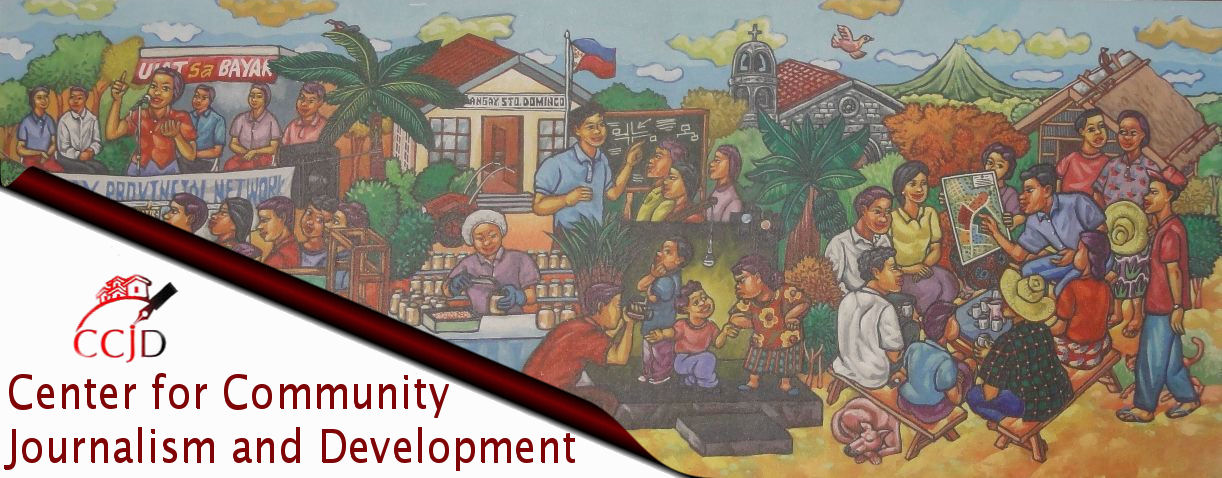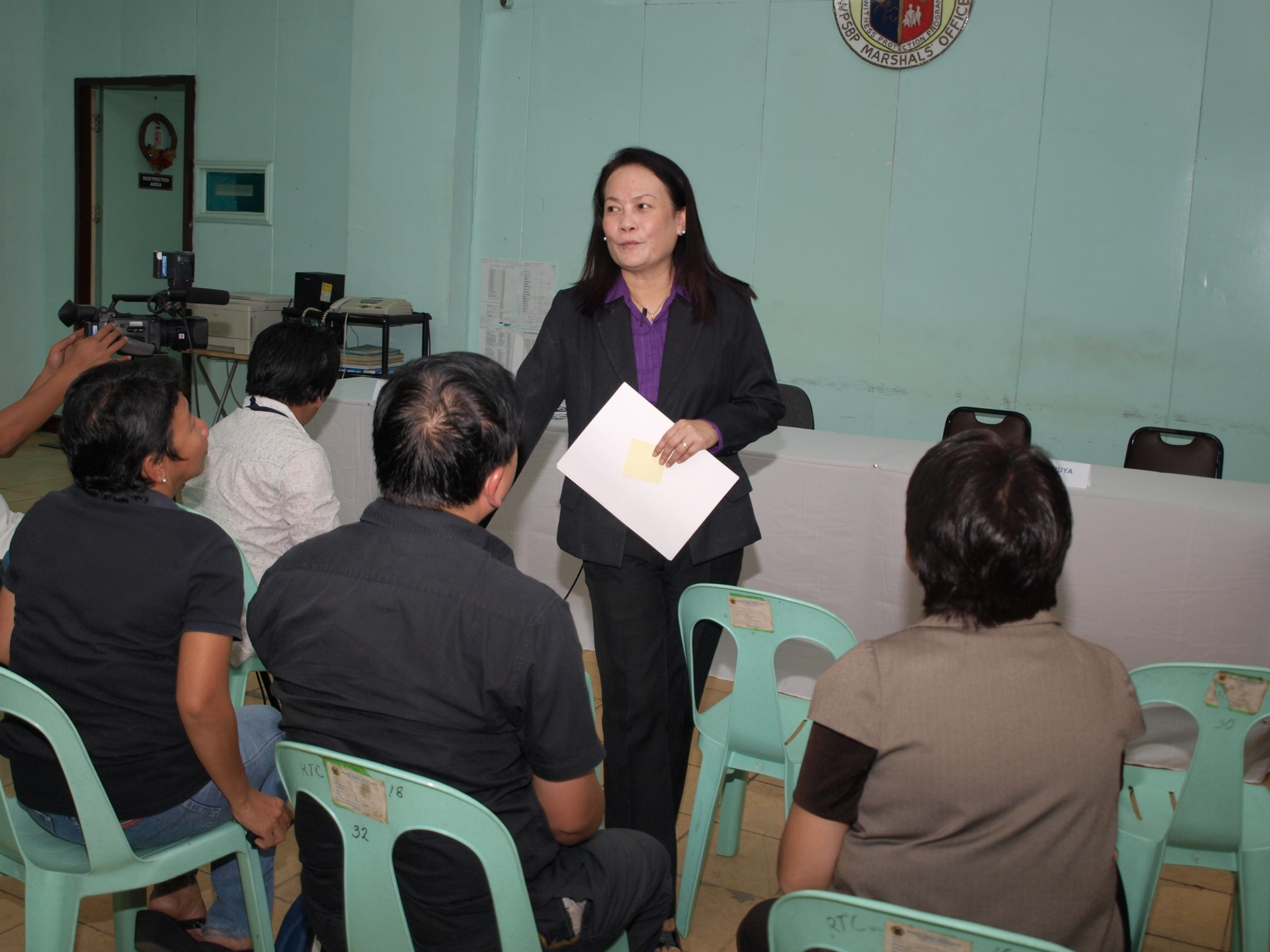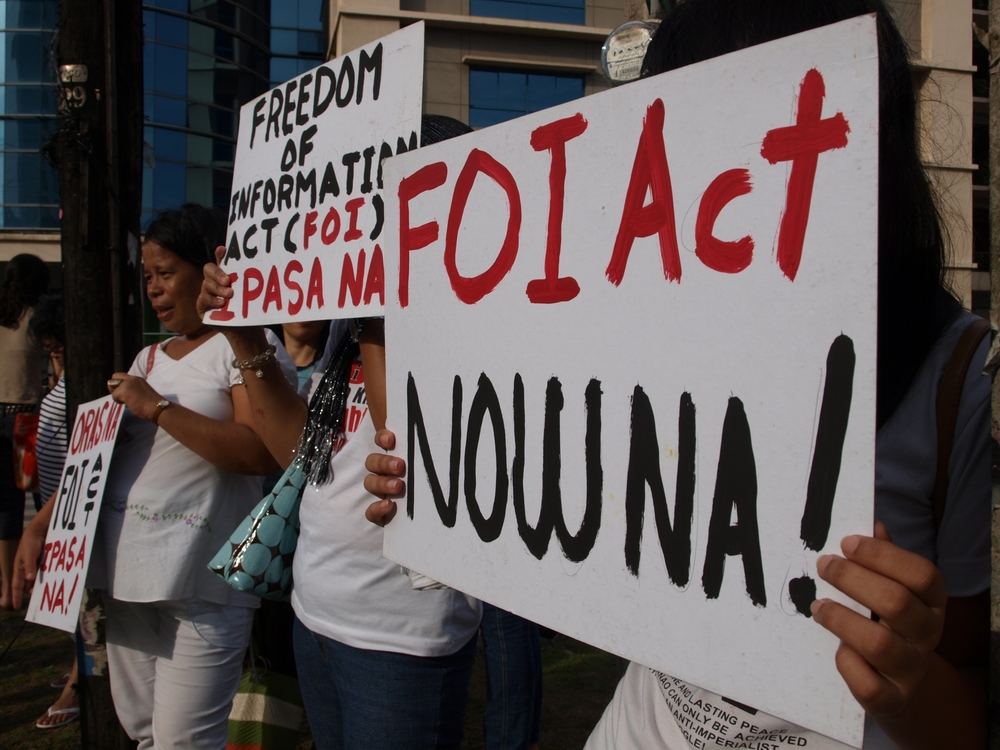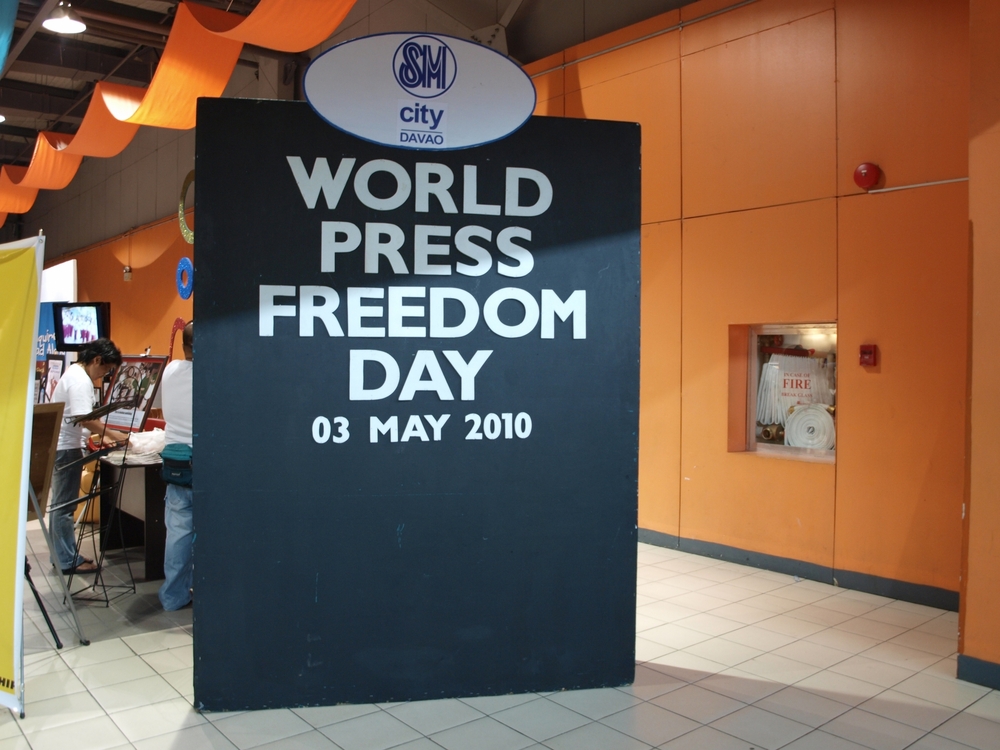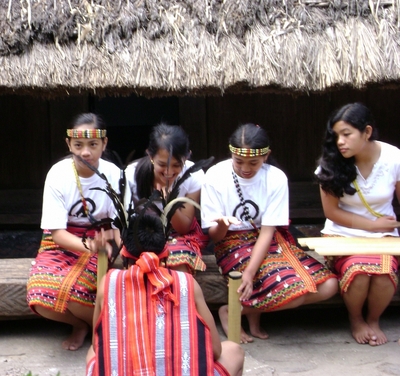This is a compilation of speeches, papers and presentations of the
CCJD and INSI-Asia in the Philippines and in the Asia-Pacific
region on topics ranging from media-citizen engagement for good
governance to working in hostile environments that may somehow
prove useful for readers.
25 March 2010
|CCJD | by:
Red Batario
Davao City- While the Philippines, among South East Asian
countries, enjoys wider latitude when it comes to basic rights like
freedom of speech, expression and information, the poor still are
chained to the shackles of ignorance. Aside from organized
citizens groups and people’s organizations, a large majority of
poor Filipinos are unable to claim their rights simply because they
don’t know how and what these are.
December 2008 |CCJD
| by: Red
Batario
It’s
called “community journalism” in Nepal and Thailand, “public
journalism” in the Philippines and Indonesia, “development
journalism” in India and Bangladesh. But the goal is the same: to
give ordinary people a chance to speak on issues affecting their
lives.
17 July 2008 |CCJD | by: Red
Batario
Spread
across 7,000 islands with a population of more than 80 million, the
Philippines faces enormous geographic and social infrastructure
obstacles in substantially improving people’s lives. Poverty,
especially in the rural areas, is very much pronounced despite
government attempts to improve access to basic services. In
many instances these attempts have been exceedingly slow in getting
to the more remote regions to address the needs of vulnerable
groups like indigenous peoples whose struggle for accessing land
rights remains a challenge.
18 July 2007 |CCJD |by:
Red Batario
Petaling Jaya,Malaysia-
Let me begin with a quote from the People on
War Report of the ICRC worldwide consultation on the rules of
war. The consultation was held in 1999 but its findings
still hold true today, an age marked by increasing conflict and
violence that threatens lives, ways of life, and our very own
humanity.
24 February 2007 |CCJD
|by: Red Batario
Diliman, Quezon
City- Journalists today face a broad range of
conflict situations that are extremely complex and confusing. From
conventional wars with defined battle lines to acts of terrorism
that blur boundaries, from banditry to extremism or even pocket
wars between feuding clans, journalists have to put themselves in
ever increasing danger to get the story out.
28 May 2006 |CCJD |by: Red
Batario
Failure
of keyMiddle Eastplayers to broker a peace plan in the
Israel-Lebanon conflict is exacting a terrible toll on civilian
lives and properties. The continuing exchange of artillery
and rocket fire between Israeli troops on the one hand and
Hezbollah and Palestinian gunmen on the other has heightened fears
of escalating violence in the region. From this maelstrom
journalists seek to bring the news to a global audience,
underscoring the daily dangers that news media members face in
hostile environments.
03 December 2004 |CCJD |by: Red Batario
Pasig City- - - I am not going to bore
you with the details. We all know what’s wrong with
governance in our country and what ails our media.
I
will not talk to you about the flaws of the political system, nor
the embarrassing exercise called the elections. Nor will I
discuss the superficiality of the media and their failure to
fulfill their obligation to foster effective public
life.
12 December 2003 |CCJD
|by: Red Batario
Cagayan de Oro City- -
- Journalists
are all too familiar with conflict and terrorism. Conflict
drives many of the stories that we read, see and hear. It is
a frame so beloved of the reporter who is looking for drama…the
unusual…the headline-grabber. Acts of terrorism are almost
always developing stories that have elements of tragedy and horror,
easy news pegs that can be easily cobbled together as the day’s top
story.
11 October 2002 |CCJD
|by: Red Batario
Jalan Sultan Ismail, Kuala Lumpur - - -
Sometime ago I came across a thought-provoking article
on the workings and attitude of the present day news media.
Something struck me in that article, a passage attributed to Ervin
S. Duggan, president of the US Public Broadcasting
Service.
